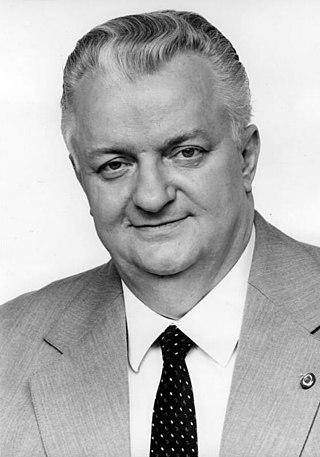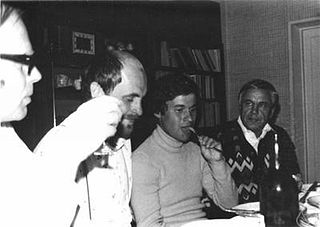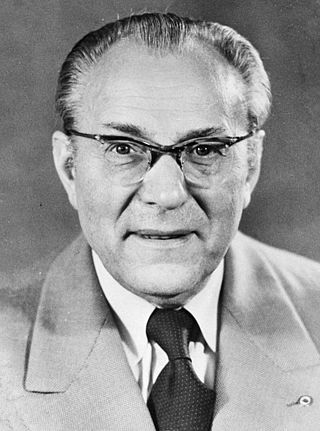Liechtenstein has recognized same-sex registered partnerships since 1 September 2011 following approval by voters in a referendum. Liechtenstein was the second country in the world to pass a partnership law by referendum, after Switzerland in 2005.

Lesbian, gay, bisexual and transgender (LGBT) people in Liechtenstein enjoy several but not all of the same rights as non-LGBT people. Same-sex sexual activity has been legal since 1989, with an equal age of consent since 2001. Same-sex couples have had access to registered partnerships since 2011, and discrimination on the basis of sexual orientation has been outlawed in some areas since 2016.

Eva Strittmatter was a German writer of poetry, prose, and children's literature.

Kurt Wünsche is a former German politician who was twice Minister of Justice of the German Democratic Republic.

Ernst Melsheimer was a German lawyer.

Helmut Müller-Enbergs is a German political scientist who has written extensively on the Stasi and related aspects of the German Democratic Republic's history.
Wilhelm Bachem was a German politician. Between 1947 and 1950 he was the Minister for Transport in Thuringia. In 1950, for a few months, he was a minister in the East German national government.

Werner Krolikowski was a German political official who became a senior politician. He was a member of the Central Committee of the ruling SED (party) politburo and a deputy chairman of the national Council of Ministers. He also produced a number of political publications.
Peter Moreth was a German politician of the East German satellite party LDPD. He was a member of the Volkskammer from 1986 to March 1990 and member of the State Council of East Germany from 1986 to November 1989. During the Peaceful Revolution he was a Deputy Chairman of the East German Council of Ministers from November 1989 to March 1990, overseeing local government. During the transition towards German reunification he was briefly the first president of the Treuhand, the organisation entrusted with the privatisation of East Germany's nationally-owned enterprises.
Andreas Herbst is a German historian. His career has been divided between authorship and museum work. He has written extensively on aspects of the German Democratic Republic and since 2001 has worked for the German Resistance Memorial Center in Berlin.

Helmut V. Koch is a German mathematician specializing in number theory.

Dietmar Keller was an East German politician (SED/PDS) who served as Minister for Culture in the Modrow government. After reunification he sat as a member of the German parliament ("Bundestag") between 1990 and 1994.
Georg Friedrich Alexan was a Jewish German journalist, best remembered as the editor-in-chief of the East German newspaper USA in Wort und Bild.
The Wochenpost was an East German weekly. It was founded in 1953, and circulation peaked at over one million copies per issue from 1971 to the German reunification. The academic Deirdre Byrnes writes that the paper was "one of the most influential" publications in East Germany. Its highest circulation was around 1.2 million copies, making the paper the most popular weekly in East Germany. It was considered a paper for intellectuals. The paper continued to be published after German reunification until it ceased publication in late December 1996.
Wolfgang Lesser was a German composer and music official of the DDR.

Eberhard Hermann Erich Zeidler was a German mathematician, who worked primarily in the field of non-linear functional analysis.

The First cabinet of Otto Grotewohl, also known as the Provisional Government of the GDR was formed by a law on the government of the GDR on October 7, 1949. According to the law, members of the government were: the prime minister, his 3 deputies and his 14 ministers. The number of ministers would increase to 15 after the State Security Department was elevated to a ministry by the Law on the Formation of a Ministry for State Security of February 8, 1950). It existed until November 7, 1950, after which the Council of Ministers became the government of the GDR as the Second cabinet of Otto Grotewohl.

At the inaugural meeting of the Volkskammer on 8 November 1950, Otto Grotewohl was elected Prime Minister. At the same time, the law on the government of the German Democratic Republic was approved and thus given a structure. Grotewohl presented his government at the 2nd meeting of the People's Chamber on 15 November 1950. Among them were 4 state secretaries with their own portfolio, whose secretariats were set up by resolution at the 1st government meeting, which took place before the 2nd Volkskammer conference. At the 2nd government meeting on November 16, 1950, the respective state secretaries of the ministries were appointed by resolution. Among the 21 ministers and almost 30 state secretaries were 13 candidates and members of the Central Committee of the SED, including 4 members of the Politburo. The block parties were represented by a total of 9 ministers and 8 state secretaries, with the CDU alone providing 4 ministers. The DBD was the only block party that did not provide a deputy prime minister at the beginning of the government period. The following overview lists the ministers and state secretaries of the GDR government at the beginning of the government period.

The following overview lists the ministers and state secretaries of the 3rd Council of Ministers of the GDR from December 8, 1958, to October 7, 1963.

The following overview lists the ministers and state secretaries of the 4th Council of Ministers of the GDR from 14 November 1963, to 14 July 1967.










